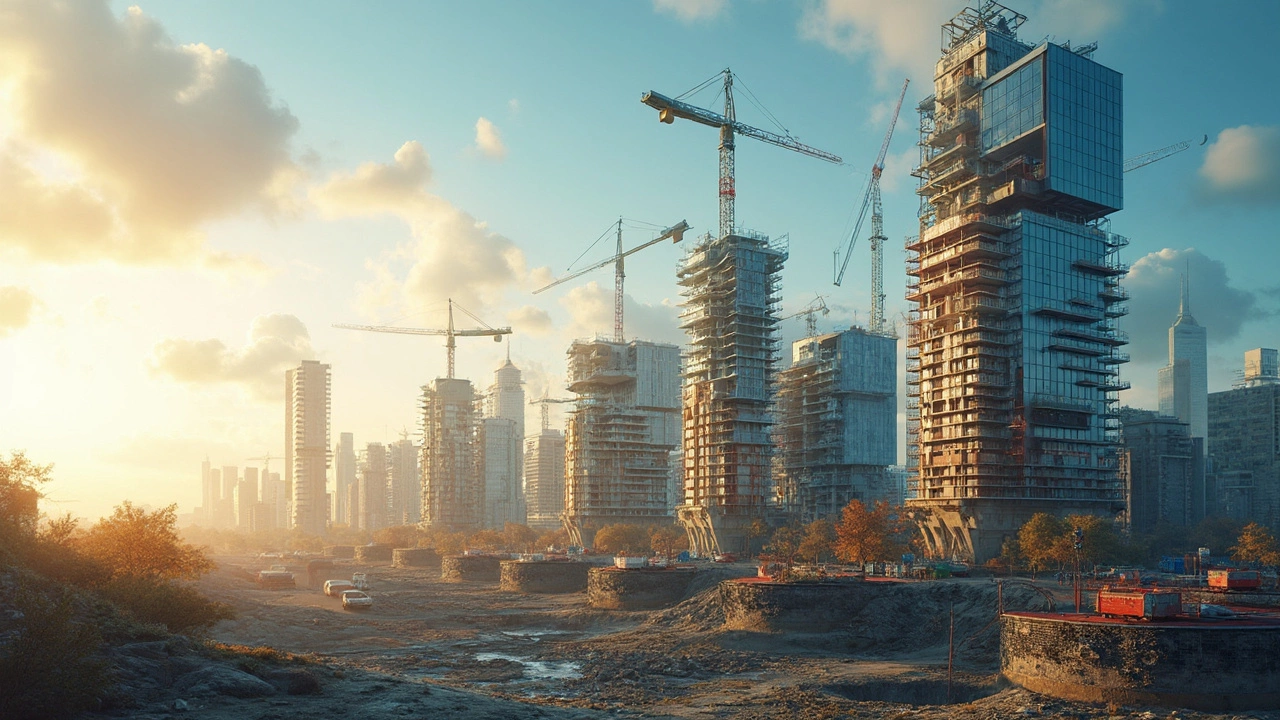Building Settling Time: What It Is and How Long to Wait
If you’ve just finished a new build or a big extension, you’ve probably heard the term “settling time.” It’s simply the period a structure needs to adjust to its own weight, soil conditions, and weather. During this time the frame, walls, and floor slabs may shift just a few millimetres. Ignoring it can lead to cracked tiles, squeaky floors, or even more serious structural issues.
Why Buildings Need Time to Settle
When concrete cures, it shrinks. Soil underneath the foundation also compresses over time, especially if it’s clay or loose sand. These movements are normal, but they happen faster in the first few months after construction. If you install heavy flooring or fixtures too early, you lock in the structure before it’s stable, which can cause future problems.
Think of it like a fresh loaf of bread – you let it rise and cool before slicing. The same idea applies to buildings. Allowing the building to settle means you’re giving the materials a chance to reach their final size and strength.
How Long Does Settling Usually Take?
Most new homes in the UK settle noticeably within the first 6‑12 weeks. Full stabilization can take up to a year, especially for larger builds or those on expansive soils. Here’s a quick rundown:
- 0‑2 weeks: Concrete is still curing, minor shrinkage.
- 2‑8 weeks: Primary soil compression, biggest movement.
- 2‑6 months: Slower, steady adjustments.
- 6‑12 months: Near‑final position, only minor shifts.
If you notice big cracks after a year, it could be a sign of ongoing settlement problems, and you might need a structural engineer to check it out.
For flooring projects, a safe rule of thumb is to wait at least 8 weeks before laying tile, hardwood, or luxury vinyl. Carpets can usually be fitted a bit earlier because they’re more forgiving, but it’s still wise to let the sub‑floor settle.
Want to speed up the process? Keep the site dry and avoid heavy loads on the slab during the first months. A well‑drained site and proper curing methods from the builder go a long way.
In short, building settling time is a natural part of any construction project. Respecting it protects your investment, keeps your floors level, and avoids costly repairs down the road. So, give your building the time it needs – it’ll thank you with a solid, crack‑free finish.
How Long Does It Take for a New Building to Settle?
- Gavin Whitaker
- |
- |
- 0
New buildings are a marvel of modern construction, but they must undergo a natural settling process. This process involves the gradual shift and stabilization of a building's foundation. Learn about typical settling timelines, factors that influence this process, signs that your building is settling correctly, and some handy tips to handle any settling issues.
View more